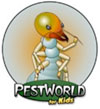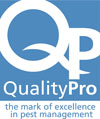Pest control, like any kind of business, is a joint venture between the company and the customer. As with many businesses, customers may have difficulty judging whether they have received the most skilled efforts for their money. This information should help customers objectively look at the service they are buying to determine its merit.
Your first contact with a pest control company may be through a salesman who is sent to sell you pest control services. Salesmen are ambitious and some have been known to tell customers that a specific service is necessary when none is required.
Selling unnecessary pest control services is prohibited by the pest control laws. However, homeowners must buy pest control services wisely.
The following steps should be taken by homeowners to buy wisely:
- Shop around for the best service at a reasonable price.
- If your pest problem is identified, diagnosed, solved, and treatment program sold over the phone “sight unseen” yet you are unsure, ask for an on site inspection.
- Service recommendations can vary from company to company. Ask for more than one to find what best suits your needs.
- If you do not know how to recognize insect infestation or damage, ask the salesman to show it to you. He must have evidence to recommend treatment.
- Have the salesman certify in writing that the premise or structure is infested with a specific pest and that a treatment is required.
- You may confirm the salesman’s diagnosis by sending evidence of the pest or damage he shows you to the Cooperative Extension Service office in your county. An unbiased opinion may insure the proper treatment.
- Get opinions from two or more pest control firms before deciding on expensive and extensive treatments.
- Read the proposed contracts carefully so you know exactly what the company will do and guarantee. Ask the salesman to interpret parts that you do not understand.
- Check with the Better Business Bureau to be certain the company has a clean record.
By following these procedures you are more likely to buy the services you need and want.
What to Look for in the Delivery of Service
All company employees who come to your house reveal the professionalism of the firm. Look for the following:
- Is the vehicle in which they arrived dirty and messy? Is the vehicle plainly marked with the name of the company with whom you are dealing?
- While performing the job, are they considerate, courteous, and careful with your belongings?
- Do they replace items they move to do the job?
- Are they organized or must they continually run to the truck for supplies?
- What are the qualifications, experience, certifications of the actual technician performing your Service.
If you are impressed with all the factors about the technicians, you have reason to believe they may be conscientious in performance of pest control. However, all these are superficial and not alone a true indication of the effectiveness of the services they have rendered.
There are several direct indications of the quality of pest control services the company is delivering. Companies that are concerned about your safety will follow several basic rules. These are:
- Pesticides should never be diluted in your house. Pesticides should always be diluted in or at the service vehicle or at the company’s business location. Any applicator who dilutes pesticide in your home is not using approved pest control practices.
- The technician should always leave his service equipment and pesticides in a locked vehicle or service compartment when not using them.
- Pesticides should be applied indoors with low pressure to prevent splashing and runoff. Any spills or puddles should be wiped up immediately by the technicians. Technicians should come into your home with rags, etc., to wipe up accidental spills.
- Every time a spray is applied indoors, you should be told to keep pets and children away from surfaces until they are dry. The technician should also request that anyone suffering from allergies, heart ailments, or respiratory problems be kept out of the room during the application, or that application be delayed until such persons can be removed.
- Pesticides should never be applied to food products, utensils, or to surfaces that food will contact.
- Applicators should be prepared to protect caged pets by covering them and should shut off air pumps in fish tanks. If cages are removed from rooms, they should check them to make sure they are free of pests.
- The technician should never apply water based pesticides to electrical equipment.
- You should be warned to keep children and pets off lawns until the chemical has dried.
- Poison baits should be placed where children or pets cannot get to them.
- The technician should point out any damage present before spraying, such as stains, burns, etc., so you will not think spraying caused the problem.
- Technicians should never give or sell pesticides to customers. Never ask the technician to give you a pesticide.
- Children’s toys, mattresses, and bedding should never be sprayed with pesticides.
Complaints about Pest Control Firms
It is against the law for a pest control firm or its employees to perform pest control in a negligent manner. It is also against the law for any pest control firm or its employees to knowingly make false or fraudulent claims, misrepresent, the effects of materials or methods, or fail to use methods or materials suitable for the pest control undertaken. Fraudulent or misleading advertising is also against the law. Pest control firms cannot tell you that a pest is infesting your property or structure, or tell you that a specific treatment for pest control is required, unless supporting evidence of an infestation exists. A pest control firm violating the law may have its license or certificate suspended or revoked if the claims are proven. If you have a pest control complaint regarding any negligence, fraudulent claims, or improper use of materials and methods, contact the Wisconsin Department of Agriculture, Trade, and Consumer Protection.






 Milwaukee, Waukesha, Ozaukee, and Washington Counties
Milwaukee, Waukesha, Ozaukee, and Washington Counties